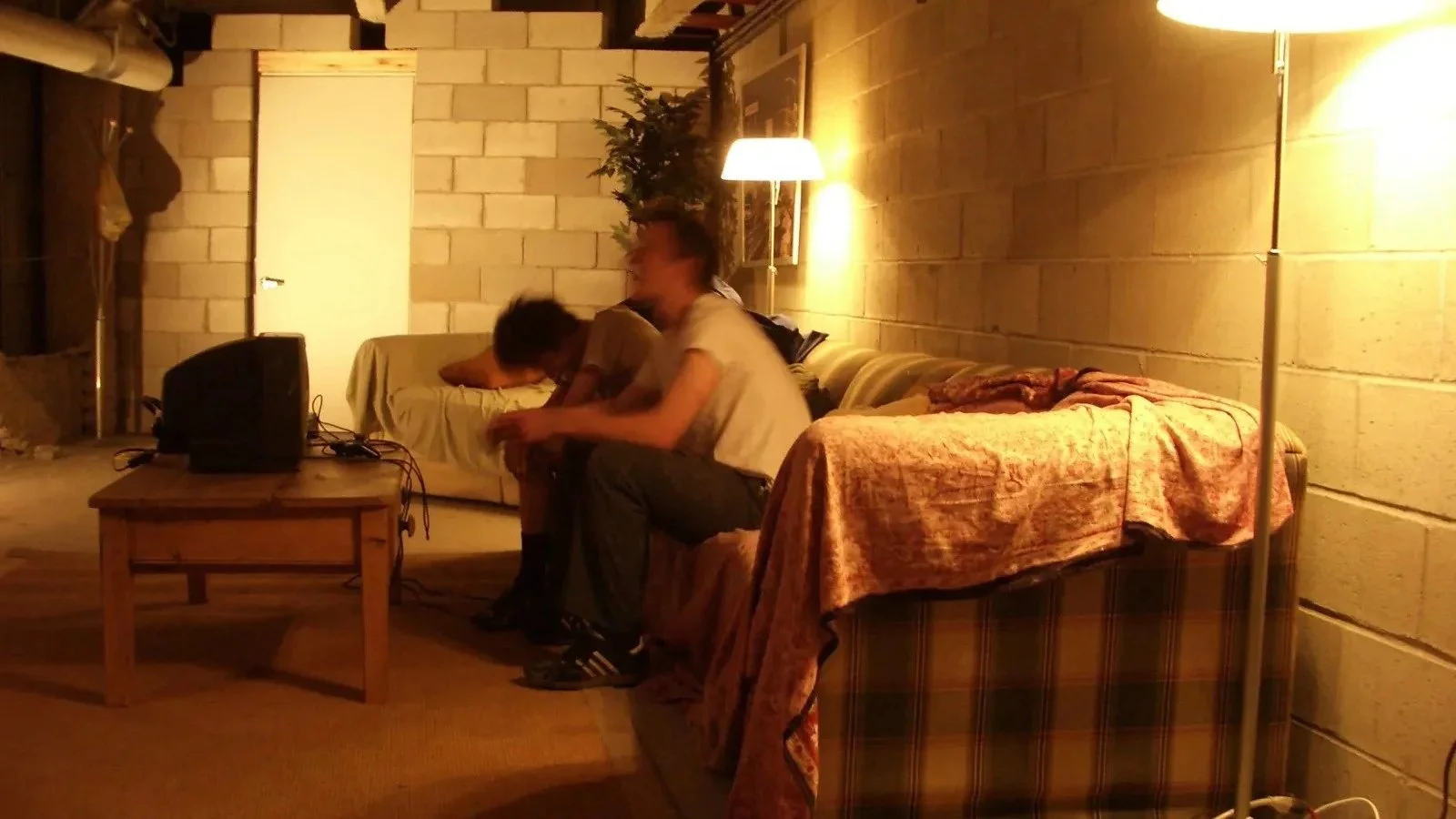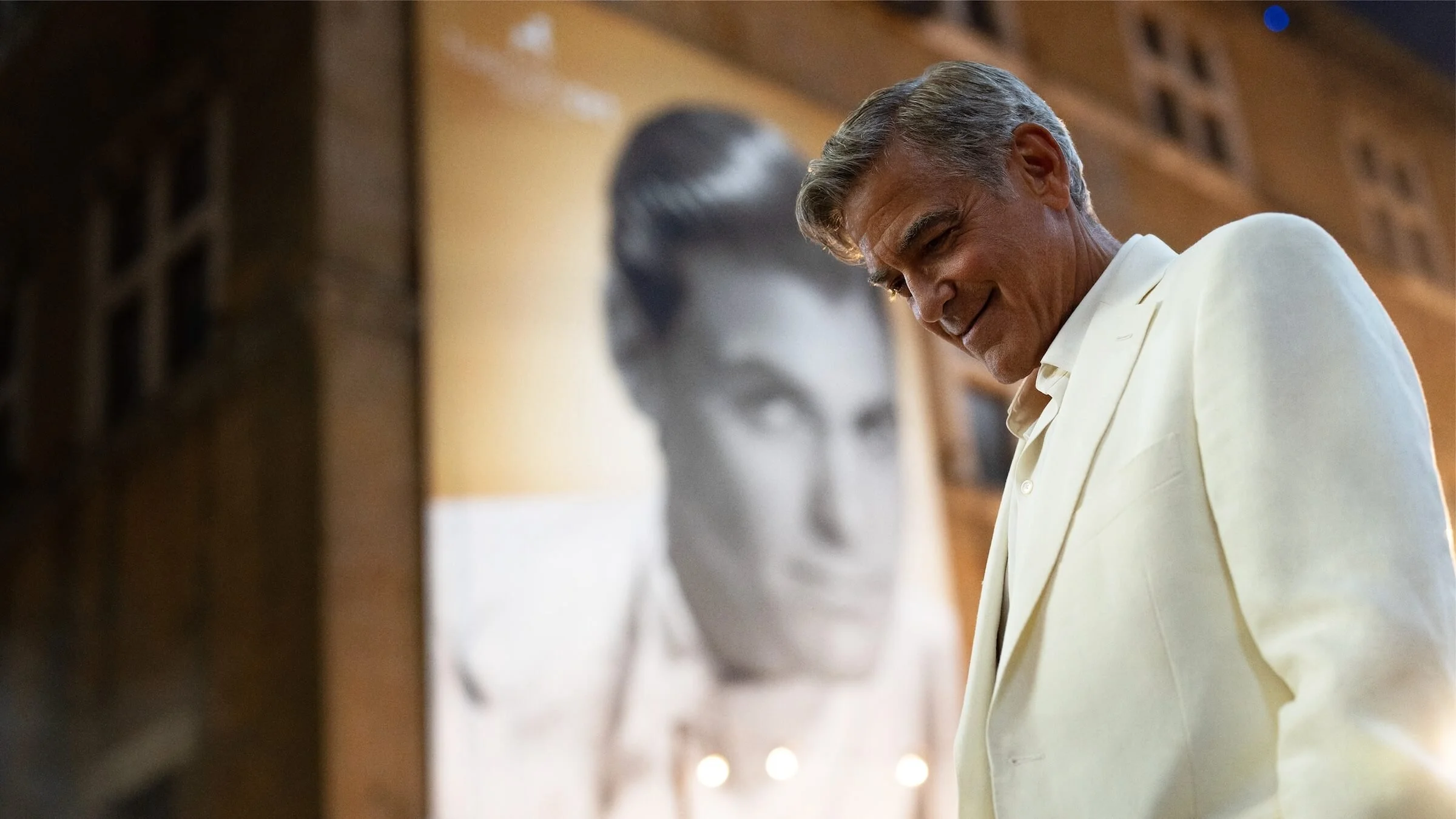Review: The Fantastic Four: First Steps (2025)
As both the marketing and the film itself constantly remind us, the Fantastic Four are Marvel’s “first family.” First family means a lot of things in this context. They were the first creations of the legendary comics team of Stan Lee and Jack Kirby, debuting in 1961—before Spider-Man (1962), the X-Men (1963), or the Avengers (1963). They hold pride of place in Marvel’s comic book history. Also, the family aspect is not incidental. This isn’t just another superhero team, even if they were inspired by the popularity of rival DC’s Justice League team-up comics. Like any family there are bonds among the characters; some are bonds of blood, some of long-time friendship, some of romance. The characters can bicker and disagree, but they come together to solve problems together rather than alone.
Despite their place in the Marvel canon, the first family hasn’t had a ton of cinematic success, despite many attempts to bring them to the big screen. This is the fourth kick at the can to bring Marvel’s first family to the screen, starting with, if we count it, the infamous, never-released 1994 Roger Corman production, followed by the 2005 Fantastic Four and its 2007 sequel, Rise of the Silver Surfer, and the 2015 reboot directed by Joshua Trank. Nevertheless, I would argue this is really the first to deliver a satisfactory portrayal of the characters.
The Fantastic Four: First Steps is essentially a solid super hero film of the current mold. It doesn’t transcend the genre as it has developed: it’s far too concerned with in-jokes and references for casual viewers, and the plot is convoluted (as Anton puts it in our Superman podcast, here’s another Marvel film that doesn’t pass the “summary test”). However, neither is it an overly long slog nor a major betrayal of the core conception of these heroes. This portrayal finally feels like the characters from the comic books, and it’s fairly inventive compared to most superhero films in aspects of its approach to the world it's portraying.
It is tough to bring in some of the most famous Marvel superheroes so late in the development of the MCU, especially without raising questions about where they’ve been while Thanos wrought havoc on the universe and lesser known characters got their own films. (Where were they, you ask? In development purgatory and previously under the creative and financial control of 20th Century Fox until Disney completed their purchase of the studio in 2019.) And so, Marvel head honcho, Kevin Feige and director Matt Shankman wisely make First Steps an almost entirely stand-alone film, mostly unconnected to the larger Marvel Cinematic Universe in terms of plot developments, even if does assume a lot about the viewers’ knowledge of the Fantastic Four and their origins.
The Fantastic Four: First Steps is most successful at capturing the unique appeal of Dr. Reed Richards (Pedro Pascal), his wife Sue Storm (Vanessa Kirby), her brother Johnny Storm, and their best friend, Ben Grimm (Ebon Moss-Bachrach). The film really leans into the family dynamic, allowing us to see their affection for each other and their knowledge of each others’ strengths and weaknesses. Just as Lee and Kirby saw the success that DC was having with their team books in the early 60s and decided they should make their own, perhaps Marvel saw the success of the Fast & Furious films, with the appeal to the power of la familia, and realized they should lean into that aspect. The film certainly mentions it nearly as much as the later Fast & Furious films.
The other big creative choice, which I found to be mostly successful, was embracing the character's origins in the 1960s, just as Captain America: The First Avenger (2011) was set during World War II. While the end of the film confirms this timeline as Earth-828 (deriving its name from Jack Kirby’s birthday on August 28) rather than the usual MCU timeline, it’s immediately clear that this is an alternate, retro-futuristic 1960s, with more advanced technology and political events that have diverged due to the existence of the Fantastic Four before any other superheroes.
In this film’s reality, Reed, Sue, Johnny, and Ben have, just as in the old comics, been transformed by cosmic rays on their inaugural space flight and imbued with superpowers, turning them into Mr. Fantastic, the Invisible Woman, the Human Torch, and the Thing. Their powers and Sue’s efforts at global diplomacy have brought about world peace at the height of the Cold War and established the family as planetary heroes and icons. We get a brief montage of the team’s exploits, including recreations of their clashes with classic villains, including Mole Man (Paul Walter Hauser) and the Super-Apes, as well as the original cover of Issue No. 1 when they fight a giant green monster. The film fast-tracks the origin with a vintage television celebration of the anniversary of their creation, on a television special hosted by Ted Gilbert (Mark Gatiss). On the show, the group announces to the world that their family is about to get bigger: Sue is pregnant with her and Reed’s child.
Thus, the film’s plot is centred on the child in numerous ways. Will the child be affected by the cosmic rays that altered Sue and Reed’s biology? Will it have powers? For a moment, the fate of the child is backburnered when a mysterious message from space arrives, in the form of a silver herald (Julia Garner) who announces that Earth has been targeted by the space being, Galactus (Ralph Ineson), for consumption.
The Fantastic Four, ever dutiful, suit up and launch into space to see if they can negotiate with Galactus before he arrives on Earth. But upon meeting the cosmic force himself, Galactus senses that Sue’s child is special and might be able to inherit his power, freeing him from his hunger for planets. During their return trip to Earth, the baby, Franklin Richards, is born, and upon returning to Earth the family is faced with the dilemma of either finding a new way to stop Galactus or exchanging their child for the safety of the Earth. Understandably, though horrifyingly, the people of Earth will happily take that deal, but will the pressure destroy Marvel’s first family? Tune in to theatres to find out!
As I noted above, like most modern superhero films, it’s a bit busy and unclear in motivations at times. Similarly to the recent Superman from James Gunn, the film offers an abbreviated origin and then rushes to jump right into the storyline. You just kind of have to just roll with it if you’re not a serious devotee of Fantastic Four lore.
In spite of all the cosmic-scale conflict and fan service, what makes the film enjoyable is the family aspect I already highlighted. First of all, the casting of the central family foursome is a success. Pedro Pascal is believable as Reed Richards, world’s smartest man, and he carries the burden on his elastic shoulders. Vanessa Kirby’s Sue is the core of the film, and one of the places where the casting really has to work. This Sue isn’t merely Reed’s wife or girlfriend, or a badass girlboss. She’s a hero and diplomat, as central to the team as anyone and she is Reed’s partner in leadership and appropriately maternal in her concern for others. Joseph Quinn is solid as Johnny, arrogant and hotheaded but neither comical nor stupid. He’s believable as a test-pilot type from the 60s. And Ebon Moss-Bachrach’s Ben Grimm really captures the feel of a man trapped in a body that gives him phenomenal physical power, but who has the soul of a gentler and friendlier man. In a nod to his role on Disney’s The Bear, Ben enjoys cooking, though he resents his classic catchphrase, in this film thrust on him by a cartoon show (inspired by the late-60s Hanna-Barbera Fantastic Four cartoon) about the team: “It’s clobberin’ time!”
But the family aspect succeeds not just because of the good casting but because the plot makes the family element central to the story, rather than an add on. The need to negotiate the needs of the world against the bonds of family lends the film as close to genuine emotional stakes as one is likely to get in this era of superhero films. In my mind it elevates what otherwise would be, in 2025, just another world-destroying space threat in a superhero movie.
While the film succeeds on the human level, I also appreciated the retro-futuristic visual and design elements. The mix of 1960s sets and costumes don’t lean away from delivering accurate recreations of Kirby’s designs, embracing a slightly corny look and resisting the urge to update the teams’ look. It gives it a solid 1960s comic book feel that most super hero films today lack. Galactus is allowed to be both threatening and also retain a real Kirby-esque look and feel, with large boots and gloves and bright colours. At its best this film recalls Kurt Busiek and Alex Ross’s 1994 mini-series, Marvels.
It’s really hard to capture a true sense of scale and awe these days in a superhero film and maintain a human touch. Had this film come along earlier in the nearly two decade cycle of the modern phase of the genre, I think it would have been a bigger hit and been more notable—though it would likely also have had to spend more time setting up the team’s origin and been more clear in its world building, which would have made it longer. Also, I have to say that even as I’ve praised the film’s design, at times the special effects, even on a large IMAX-scale screen, look a bit muddy and dark, as do most Marvel studios films these days. Why can’t you have a bit more bright colours or sharp images, without an ugly, over-lit AI sheen? It’s a shame they rely on so many companies to provide uneven VFX (there is controversy as some allege the film uses AI, though the studio has denied it).
Like all Marvel films, this one has a mid-credit sequence that teases a major Fantastic Four villain and seems to point to the plot of next year’s Avengers: Doomsday, but if you ignore that, the film stands pretty much on its own. I’m curious how they will integrate these versions of the characters into the larger MCU, but that’s thankfully not the main draw. That means that the film succeeds or fails mostly on its own merits, and for me, it’s an enjoyable and moderately remarkable super hero family adventure.
6 out of 10
The Fantastic Four: First Steps (2025, USA)
Directed by Matt Shankman; screenplay by Josh Friedman and Eric Pearson and Jeff Kaplan & Ian Springer; starring Pedro Pascal, Vanessa Kirby, Joseph Quinn, Ebon Moss-Bachrach, Julia Garner, Ralph Ineson, Mark Gatiss, Paul Walter Hauser.



Joe Carnahan’s cop thriller starring Matt Damon and Ben Affleck is an enjoyable whodunnit.